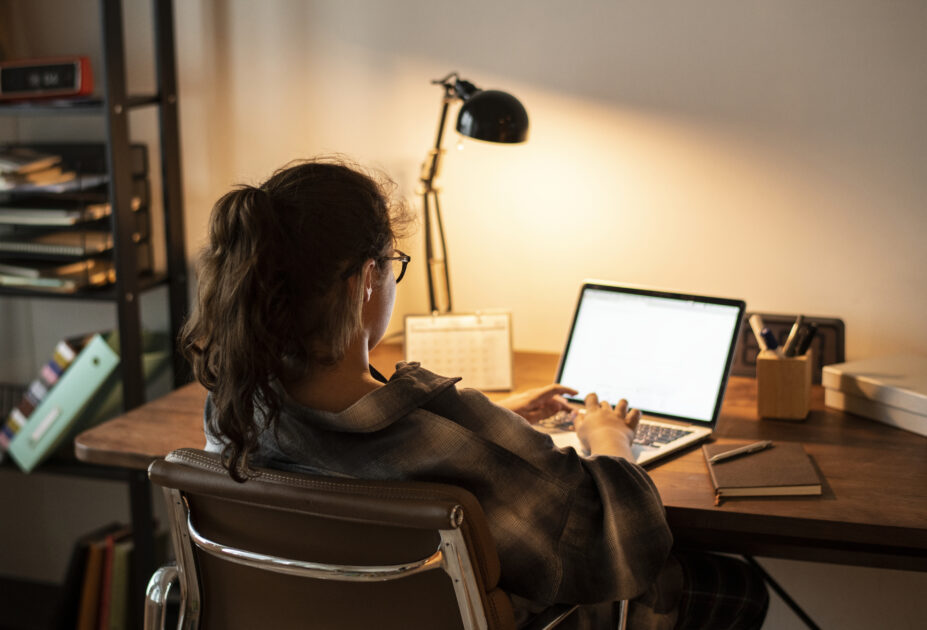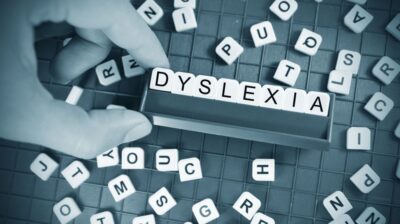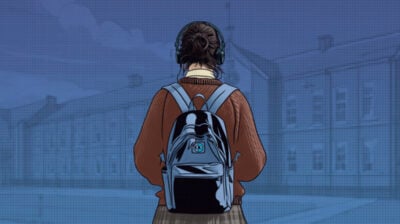My experience in the education system as a teenager with dyspraxia
Doireann shares how she navigated primary and secondary school while being diagnosed with dyspraxia.

When I was 9 years old, I was diagnosed with a condition called dyspraxia. It’s a neurological condition that affects my coordination, movement and social skills. Neurological means it is related to my brain and nervous system. The way I see it, it just means that my brain works a little bit differently than others.
Defining how dyspraxia affects me
Dyspraxia affects each person differently. Some of the things I struggle with are coordination and sudden changes. I also struggle with being organised–my room is always a bit of a mess.
I can sometimes have difficulties with processing information. I find it very hard to take in information when it is only said to me aloud. I usually need written instructions or instructions to be given step by step as I do a task.
One of the things that my primary school teachers noticed was that I hated doing PE (and I still do). My dyspraxia makes it hard for me to play games that involve throwing, catching and running. It is exceptionally hard when I have to do those activities at the same time.
Dyspraxia affects my writing skills as well. In secondary school, my school was given a grant to provide assistive technology for students who need learning accommodations. With this grant, I was given a laptop so that I would be able to type all my schoolwork as there was a worry that I wouldn’t be able to keep up.
Dyspraxia also affects my social skills. I struggled a lot in primary school to make friends and understand the social norms and cues. I’ve always had interests that were a little outside the norm. I didn’t understand why my friends didn’t want to talk about them.
How my dyspraxia diagnosis let me get help in school
Once I got a diagnosis, I was able to access ‘Resource’ at my primary school. Resource is where a student is one-on-one or in a small group with a teacher who helps them overcome or adapt to difficulties they have in school.
I learned how to type on a keyboard, how to act in social situations and about transitioning to secondary school. Resource let me learn in a way that worked for me. So instead of the traditional way of teaching with a teacher speaking to students and the students writing, I read a book about social skills and was encouraged to put the skills into use. I was also given movement breaks, a posture cushion and a sloped board to help with my concentration, posture and writing.
Transitioning to secondary school was something that my teachers did a lot of work with me for, I had never really liked change and I thrived with routine. I spent a lot of time getting ready for secondary school with my teachers. I would practise using coloured folders to organise books and copies. I did a workbook about going to secondary school and I visited my new school to help me prepare for my new surroundings.
The learning support made my transition to secondary school go smoothly
I thrived in my new environment and a lot of that was because of my routine. In primary school, I struggled with not knowing when we would change to different subjects. I usually went to Resource after lunch and I struggled if this time changed or if I couldn’t go to Resource on a particular day.
In secondary school, I have a timetable with the times, subjects and classrooms. It is really helpful to come to school in the morning and know what will happen for the day. We also use Microsoft Teams in school and teachers can post work when they are absent or if there is something important that we need to know.
The class size works better for me as well. My primary school class was quite big and I struggled with this, but now my classes are quite small. My accounting class only has six students. Even the biggest classes in secondary school are only allowed 24 students.
Secondary school has also allowed me to explore my interests more. I study subjects like history and business, which I have a strong interest in. Next year I am going to take politics and society as well. Transition year has allowed me to do extracurricular activities that align with my interests like BT Young Scientist, Model United Nations and the Look into Law programme.
Due to my involvement, I’ve had various opportunities to interact with TDs, senators and members of the European Parliament.
Being involved in activism has allowed me to meet so many people with the same interests as me. 9-year-old Doireann was lonely with limited social skills but thanks to activism, 17-year-old Doireann has a large social circle and will talk the ear off of anyone willing to listen.
I recognise how lucky I am to even get a dyspraxia diagnosis
I’m also incredibly grateful for my parents. They have been so supportive of me by taking me to assessments, going to meetings with my primary school teachers to create my individual education plan and then meeting with the principals of prospective secondary schools to make sure I would be supported in a new school.
The waiting lists for a diagnosis are so long. I was lucky to be able to go private for mine in 2016. It cost €395, which is something that is unaffordable for so many families in Ireland.
There needs to be something done to make sure that every child who needs an assessment gets one. I don’t think I would’ve been able to manage school without the support I received. There should never be a child who goes without support in school because they can’t get on the list for an assessment or afford to get one privately.
My dyspraxia is a part of me, it presents its challenges but it’s what makes me, me. I wouldn’t be Doireann without it. While I am so different to how I was when I was diagnosed, I don’t think my dyspraxia has ‘gone away’ but I have learned how to adapt.
As I mentioned earlier, I struggled with movement, however, I found a sport that doesn’t involve running, catching or throwing. I’ve been horse riding for a year now and it has helped me with my coordination skills so much. I get support from my school, friends and family and I don’t ever let dyspraxia hold me back.
Feeling overwhelmed and want to talk to someone?
- Get anonymous support 24/7 with our text message support service
- Connect with a trained volunteer who will listen to you, and help you to move forward feeling better
- Whatsapp us now or free-text SPUNOUT to 50808 to begin.
- Find out more about our text message support service
If you are a customer of the 48 or An Post network or cannot get through using the ‘50808’ short code please text HELLO to 086 1800 280 (standard message rates may apply). Some smaller networks do not support short codes like ‘50808’.






